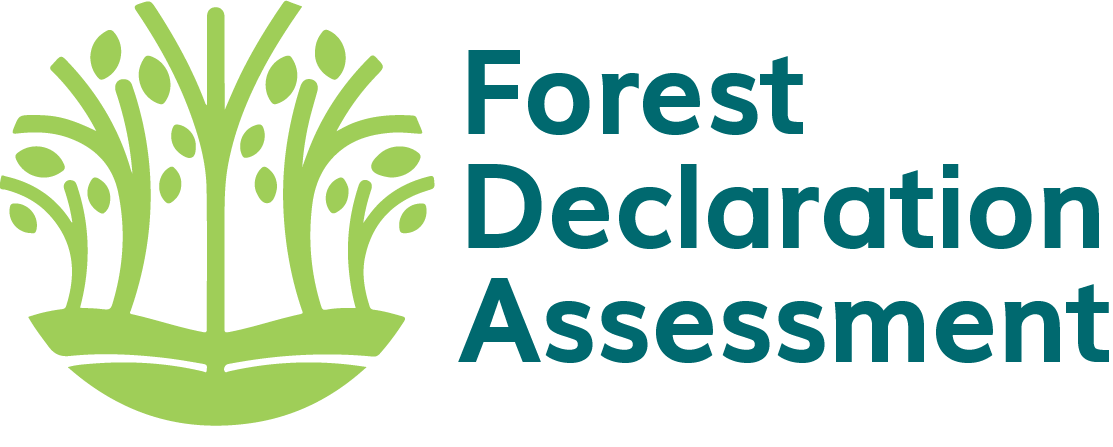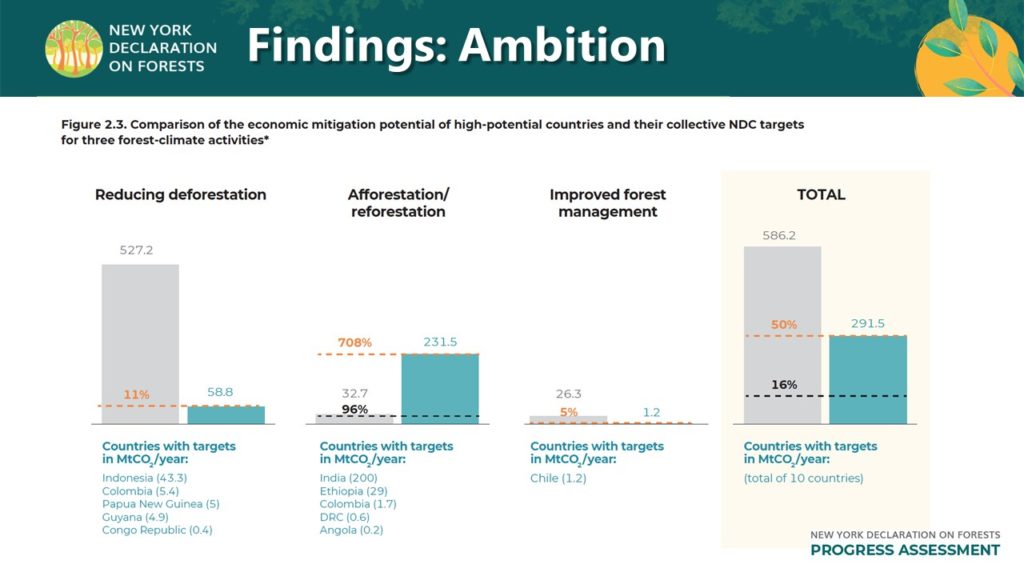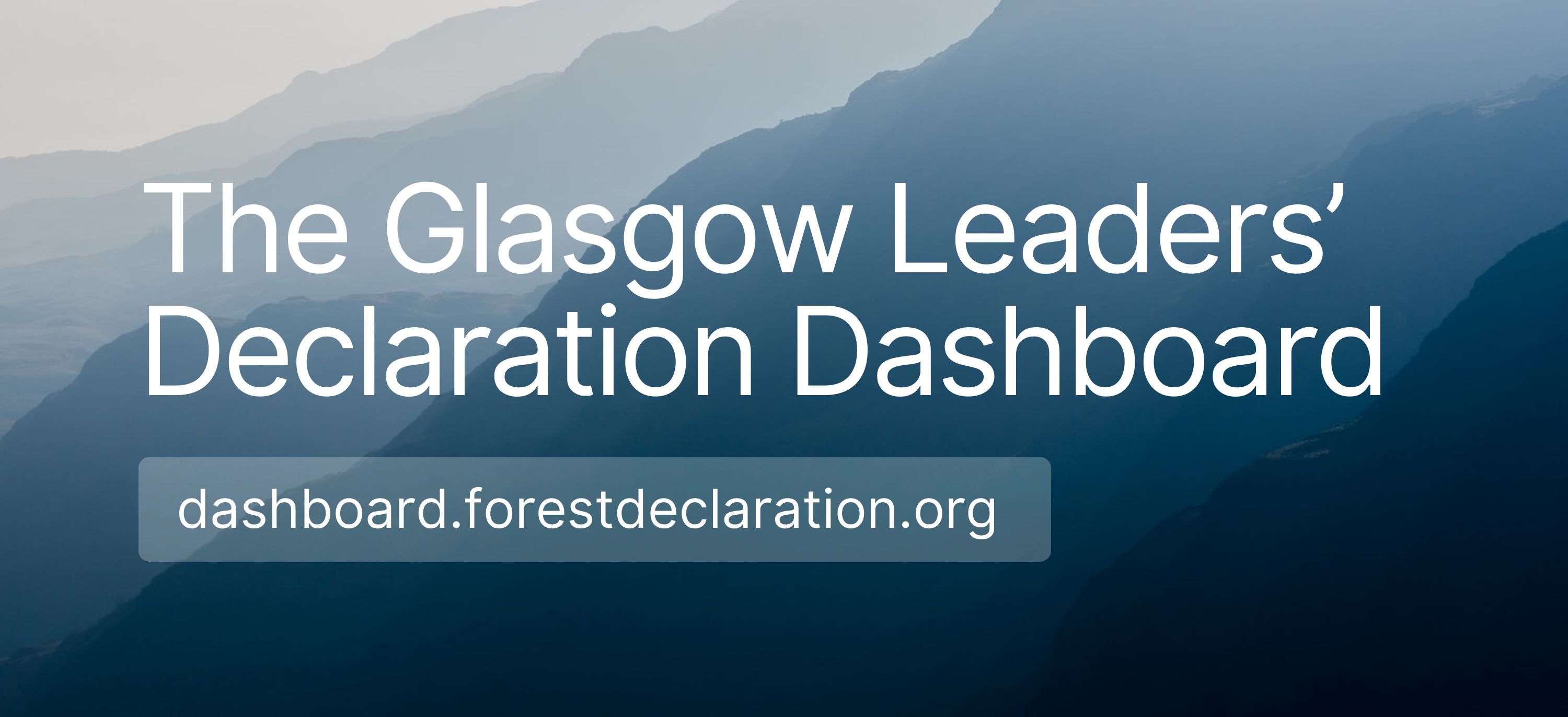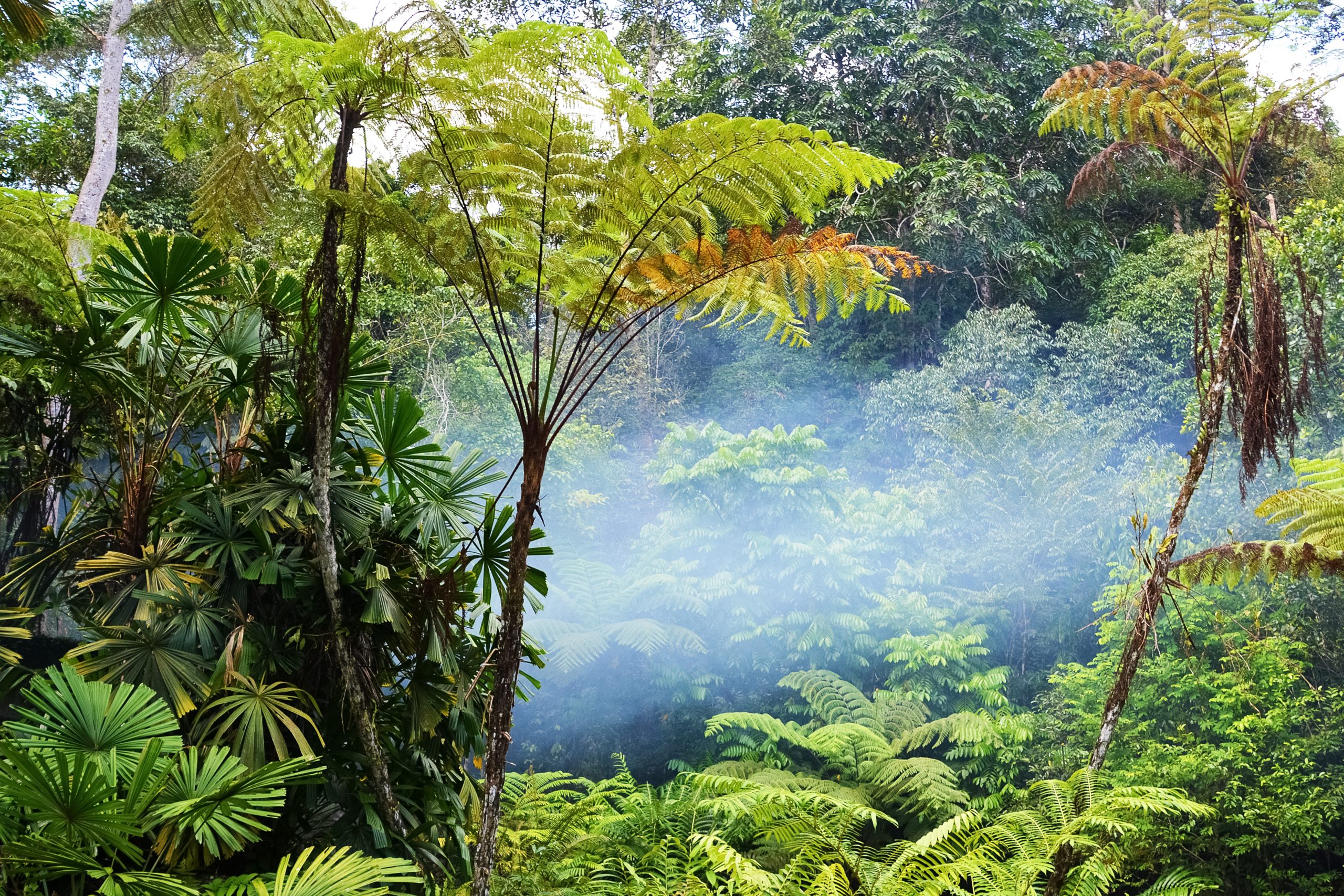COP26 marks a pivotal moment for countries to set ambitious trajectories to build a sustainable world. Forests are the natural climate solution with the largest mitigation potential. The New York Declaration on Forests (NYDF) remains one of the most comprehensive frameworks for forest action. As demonstrated in the announcement of the Glasgow Leaders’ Declaration on Forests and Land Use on Monday, 1 November, leaders across the globe are reaffirming their commitment to end deforestation by 2030, as reflected in the NYDF.
On 5 November 2021, the New York Declaration on Forests Global Platform hosted an event at the Global Landscapes Forum Climate conference - Forests, Food, Finance: Frontiers of Change - during COP26 in Glasgow. This event - NYDF: A Renewed Call to Action – was structured to address the urgent call for action on forest commitments and progress towards the NYDF goals.
Three key themes were emphasized during the event: accountability, access, and action – all which underscore and reflect the discussions and commentary shared throughout COP26. First, ensuring accountability of world leaders, the private sector, and decision-makers on meeting the pledges made during COP is essential to meet critical forest and climate targets in the next 9 years. Next, as the panelists reminded the audience, these decisions cannot be made behind closed doors and must include Indigenous Peoples and Local Communities as well as youth to ensure Indigenous- and youth-led solutions are supported, implemented, and especially, financed to secure a future for all. Finally, while these commitments are a positive step towards recognizing the important role forests play in climate, biodiversity, and securing livelihoods, they are not enough. Action on these commitments, including securing additional finance, must be scaled up and implemented in order to meet the NYDF goals and the Paris Agreement targets.
The event opened with Sanggeet Manirajah from Climate Focus, representing the NYDF Assessment Partners, who presented on the newly-launched NYDF Progress Assessment report, providing a data-based overview of progress and recommendations for countries to implement forest-based mitigation actions outlined in the Paris Agreement and NDCs and to ensure the robust participation of Indigenous Peoples and Local Communities.
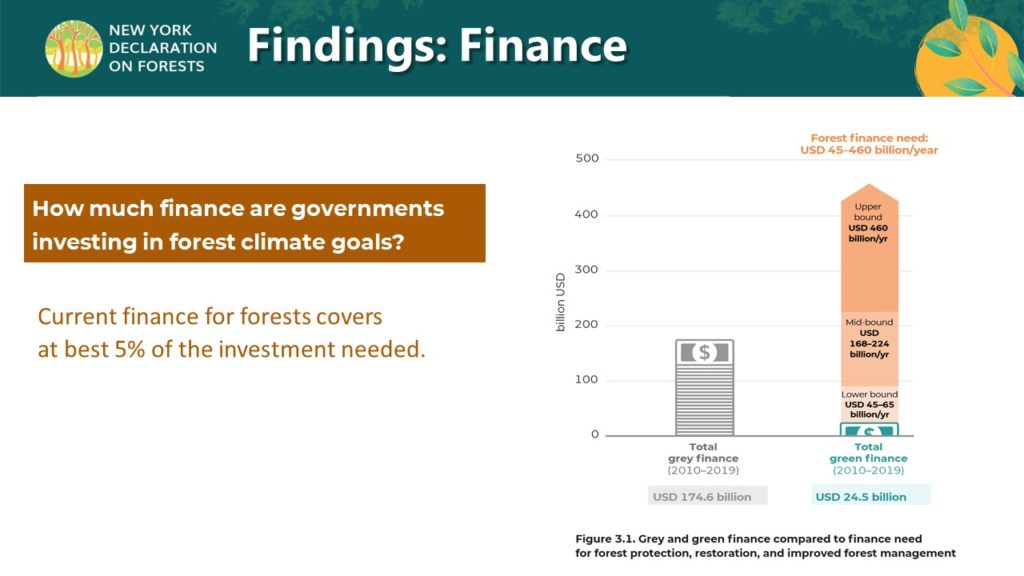
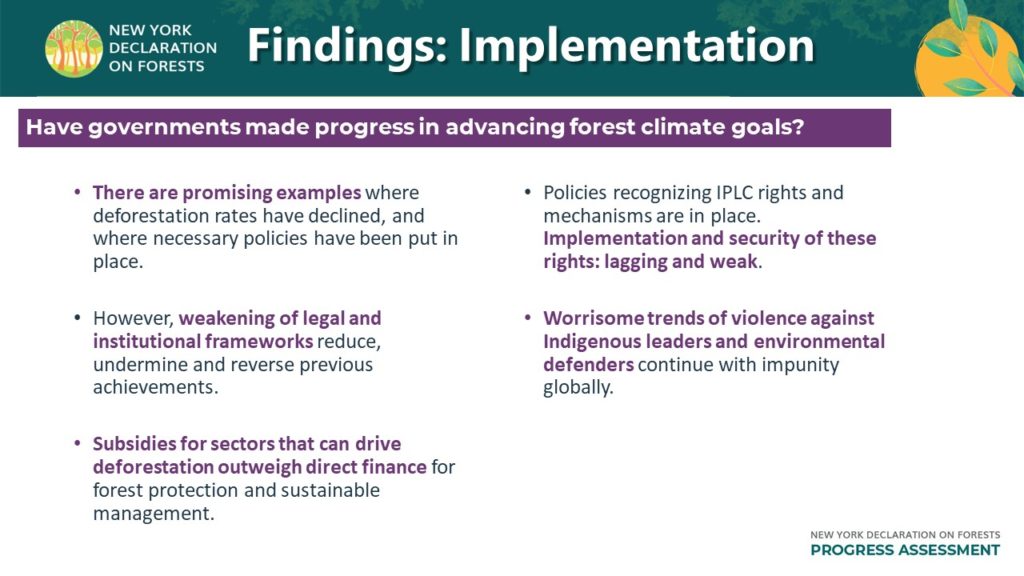
Next, the audience heard perspectives from governments and the private sector on their efforts to meet the NYDF goals so far and the progress they have made. These included:
- Costa Rica’s pioneering national forest policies and payments for environmental services scheme, including their fossil fuel tax that directs funding to local communities and producers and their leadership in promoting gender equality and the inclusion of youth and their leading national REDD+ program, which includes IPs in the decision-making process.
- West Kalimantan’s efforts to reach their provincial goal of reducing emissions from deforestation and forest degradation by 60% by 2030 and their progress towards that goal, including efforts to access innovative financing like green investments and results-based payments, and inclusive approaches through working with Indigenous Peoples, local communities, women, and youth.
- Lavazza’s commitment to deforestation-free coffee within their supply chain and partnership with Ecuador to support sustainable coffee production and local producers in the country. Lavazza also announced their endorsement of the NYDF – an important step in advancing the coffee sector’s engagement on this issue.
- The European Union’s policy on due diligence to halt the trade of commodities linked to illegal deforestation and all deforestation driven by agricultural expansion (from beef, wood, palm oil, soy, coffee, and cocoa), complimented by supply side efforts to step up cooperation programs and facilitate new forest partnerships to ensure countries are prepared for this transition.
These statements, and the many commitments presented in the first week of COP26, were accompanied with strong appeals from Indigenous Peoples, youth, and civil society to ensure accountability, access, and action on these commitments. Grace Balawag, Indigenous leader representing Tebtebba, stressed that Indigenous Peoples and Local Communities must be given a seat at the table in decision-making processes, funding for forests flow directly to communities, and a human-rights based approach be upheld to achieve global forest goals. Building on these requests, Oluwaseum Adekugbe from Youth4Nature called for enhanced accountability and monitoring of global and national forest commitments, the inclusion of youth in decision-making processes, and direct financial flows to youth who are at the frontlines of tackling the climate and biodiversity crises. Finally, Susan Lieberman at WCS forewarned of the need to ensure the preservation of intact forests and tackling the issue of nature crime, stating that the interlinkage between weak governance and regulation and environmental destruction cannot be ignored and urging that coordinated and holistic solutions be utilized to protect forests for climate, biodiversity, and people.
The event closed with remarks from Norbert Gorissen from Germany’s Federal Ministry of Environment, Nature Conservation and Nuclear Safety who emphasized five key actions in the next decade: (1) including forest protection in climate goals, (2) making sustainable consumption a reality, (3) removing deforestation-related activities from investment portfolios, (4) increasing private and public finance, and (5) improving accountability systems to meet the NYDF goals. In addition, he affirmed the importance of implementing Indigenous Peoples' rights and stressed the key role the NYDF Platform and Progress Assessment can play in increasing accountability and promoting collaboration.
Amidst the growing number of pledges and ambition on forests, this NYDF event elaborated on the need to shift from commitments to collective and bold action to protect, restore, and sustainably managing forests for people and the climate.
Related links and resources:
- NYDF’s statement on the Glasgow Leaders’ Declaration
- Event Recording:
- Spanish: Available soon.
- French: Available soon.
- 2021 NYDF Progress Assessment report: Taking stock of national climate action for forests
